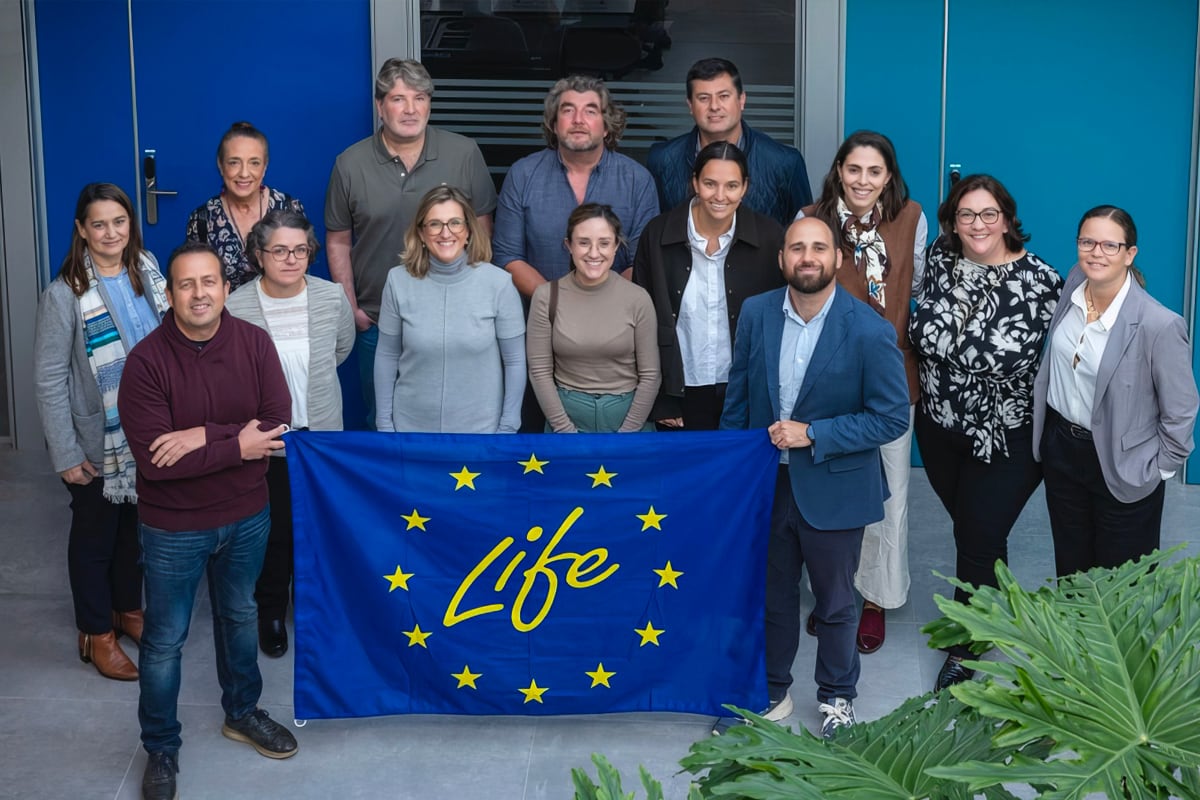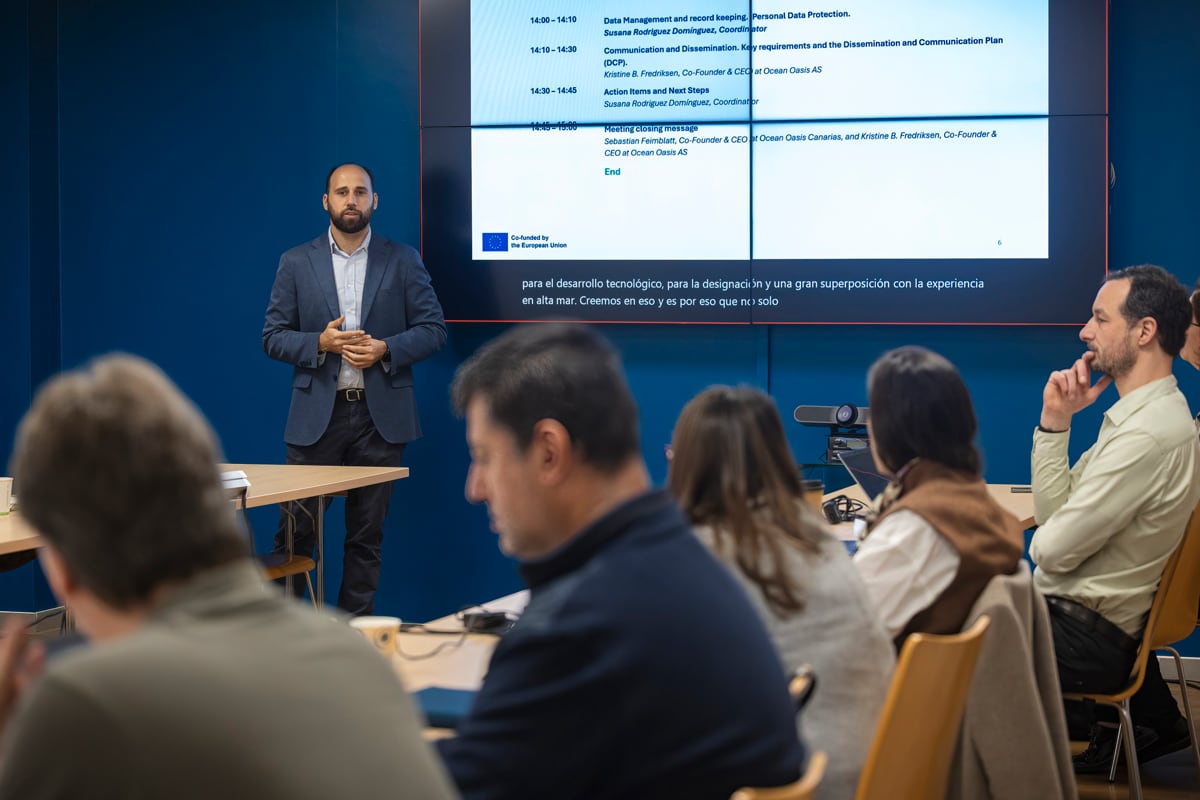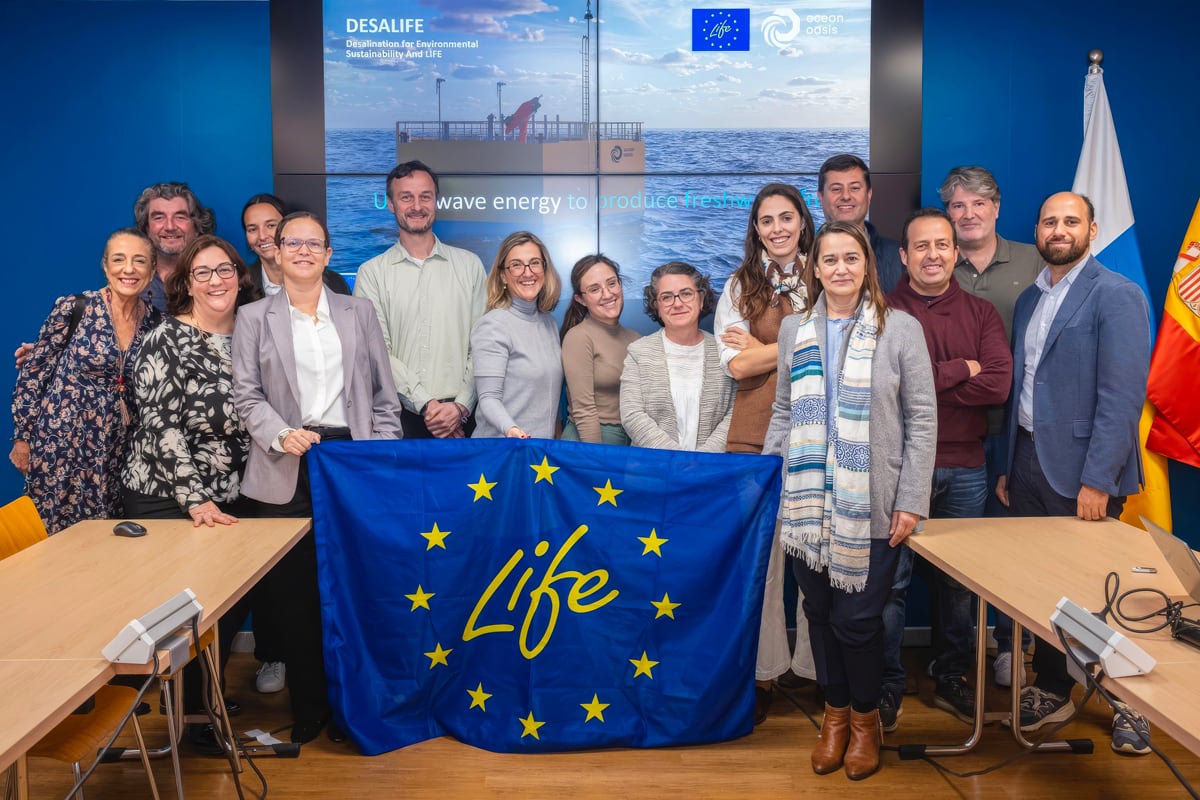Launch of the European DesaLIFE Project on Wave-Powered Desalination

The kick-off meeting of the DesaLIFE project — Desalination for Environmental Sustainability and Life — took place this Thursday at the headquarters of the Oceanic Platform of the Canary Islands (PLOCAN) in Taliarte, Gran Canaria. The meeting, led by the start-up Ocean Oasis Canarias, brought together all project partners: PLOCAN, the Canary Islands Institute of Technology (ITC), the Renewable Energy Systems Research Group (GRRES) of the University of Las Palmas de Gran Canaria (ULPGC), and elittoral, an environmental consultancy specialised in coastal and marine environments. The Island Water Council of Gran Canaria (CIAGC) also took part as an associated entity and operator of the Arucas-Moya desalination plant (EDAM), which will receive the fresh water produced by the project’s desalination buoys, targeting an average annual output of 2,000 m³ per day, equivalent to the water consumption of approximately 15,000 people.
DesaLIFE has an overall budget of approximately €10 million and is co-funded with €5.9 million by the European Climate, Infrastructure and Environment Executive Agency (CINEA) under the Circular Economy and Quality of Life Programme. This event marks the official launch of this European innovation project in the fields of marine energy and desalination, which will run for approximately five years.
José Joaquín Hernández Brito, Director of PLOCAN, highlighted:
“The energy transition in the Canary Islands is urgent, and PLOCAN is fully committed to the DesaLIFE project to promote and accelerate the technologies needed to make it viable from a social, economic, and environmental perspective.”

Sebastián Feimblatt, Co-Founder of Ocean Oasis and CEO of its Canary Islands branch, highlighted “the importance of the institutions that have supported us in the development of this technology since we arrived in the Canary Islands three years ago, and the collaboration of both public and private organisations in advancing this project, which will enable the sustainable desalination of water using wave energy.”
DesaLIFE aims to demonstrate wave-powered desalination as a sustainable and affordable solution to secure the island’s future water supply. In addition, the project will contribute to the local economy by attracting international investment and creating employment opportunities.
This floating technology desalination system uses a reverse osmosis process powered solely by wave energy, eliminating the need for grid electricity and avoiding associated CO₂ emissions.
By harnessing marine energy for desalinated water production, this technology offers a way to expand the capacity of this energy-intensive process through a renewable source, without increasing demand on the electrical grid. It contributes to the decarbonisation of the Canary Islands and enhances their energy independence.

DesaLIFE is based on the technology developed by the Norwegian company Ocean Oasis, which leverages the expertise and know-how of Norway’s offshore industry in its design. This technology has been refined through the GAIA pilot buoy, which has been undergoing testing at the Port of Las Palmas over the past year. DesaLIFE now moves forward to a full-scale pre-commercial phase, with its production connected to the Arucas-Moya desalination plant (EDAM).
DesaLIFE will also assess the replicability of the project to provide renewable freshwater to other islands in the archipelago that likewise need to increase their water production. This initiative aims to ensure that water availability no longer limits the region’s potential, supporting the transition towards a sustainable, energy-efficient, and climate-resilient economy in the Canary Islands.

Jan 22, 2025